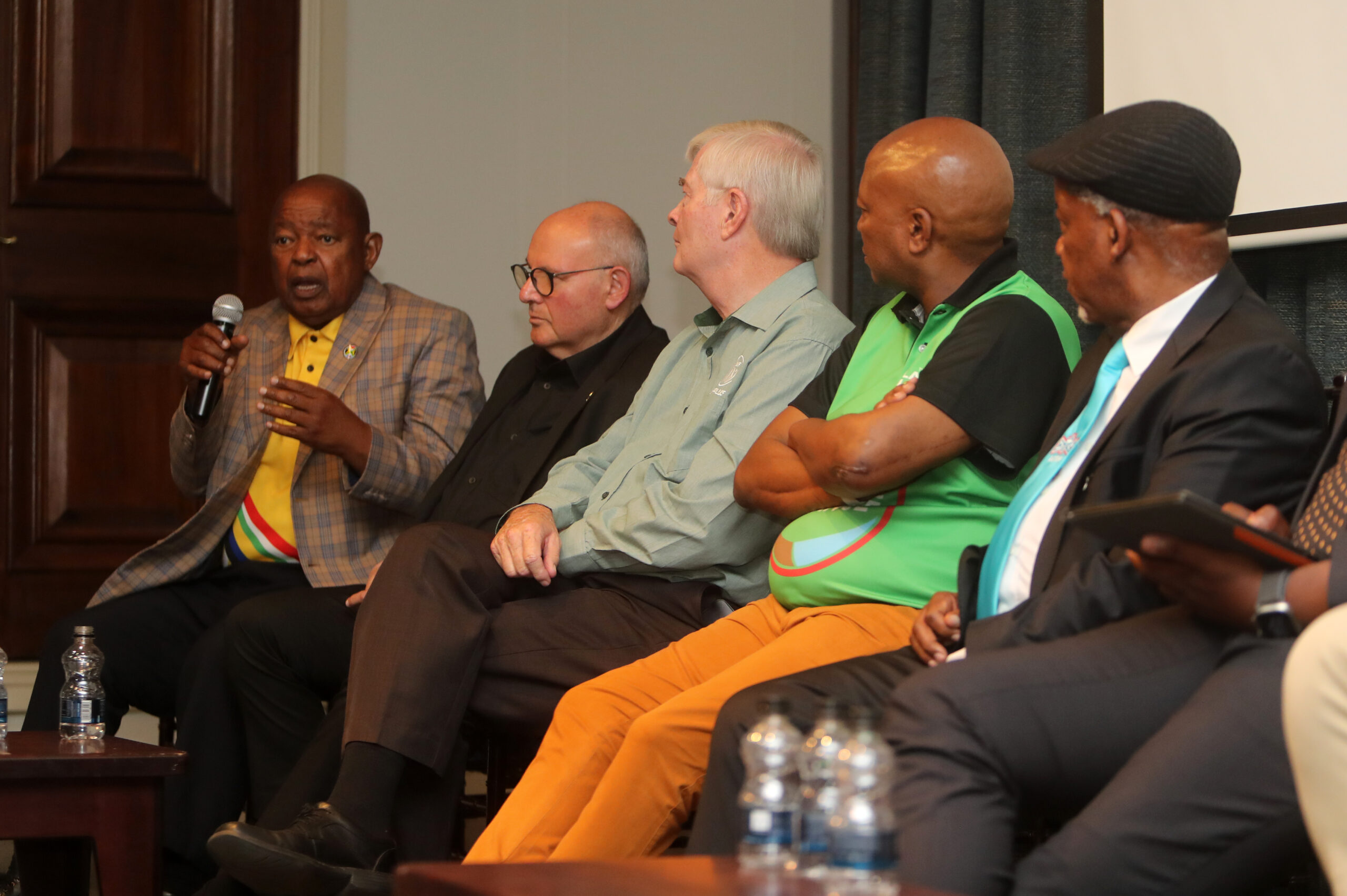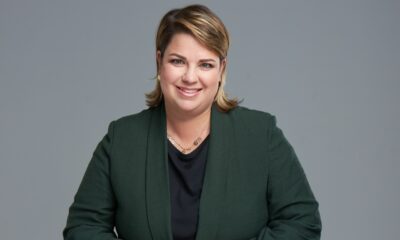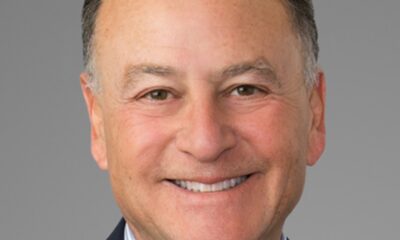
Banner

Promises, promises: this party’s just getting started
Just 10 days before South Africa holds its sixth democratic national and provincial elections since April 1994, the Jewish community in Johannesburg hosted two different events on 19 May around the vote. These were opportunities to hear from politicians and pundits about what to expect on 29 May and beyond as the country faces its most competitive and significant election yet. And some drama ensued.
At the Rabbi Cyril Harris Community Centre at the Great Park Shul in Johannesburg, eight political parties set out their platforms. The debate was entertainingly chaired by journalist and author Mandy Wiener, organised by the South African Jewish Board of Deputies, and introduced by self-proclaimed election junkie Wayne Sussman.
Parties represented were ActionSA; the African Christian Democratic Party (ACDP); Build One South Africa (BOSA); the Congress of the People; the Democratic Alliance (DA); the Freedom Front Plus (FF+); #Hope4SA; and the Patriotic Alliance (PA).
The Board confirmed that the African National Congress (ANC) and Economic Freedom Fighters (EFF) weren’t invited “after the way they treated us” especially in the wake of the 7 October massacre in Israel. That meant there was little to differentiate between the centrist and centre-right parties represented. All of these parties are to a greater or lesser extent supportive of Israel in its war on Hamas.
Sussman pointed out that this election would be different, as voters would receive three – very long – ballots to select national, provincial, and regional candidates, as well as independents. More than 50 parties are competing nationally. He also reminded voters that they could vote on 29 May only at the polling station where they had registered.
Sussman said his biggest trends from the 2019 election were the growth of the EFF and the revival of “ethnic” parties, like the FF+ for white Afrikaners, and the Inkatha Freedom Party (IFP). This time, he sees the trend of voters going “inward” continuing, including to the PA and Jacob Zuma’s uMkhonto we Sizwe (MK,) with the ANC’s “rural firewall” giving it strong support outside the big cities.
One of the most eloquent and impressive speakers was BOSA’s Mmusi Maimane, the former leader of the DA, who stressed his party’s aim to have “a job in every home in South Africa”.
It was also striking to hear migrants being openly scapegoated for South Africa’s problems, including from ActionSA, the ACDP, and the PA. The latter promised “mass deportation of all illegal immigrants” and the reinstatement of the death penalty.
The politicians were generally long on promises and short on how to deliver practically on them, given how little support some of these parties have.
Michael Bagraim, the shadow minister of labour, pointed out the DA’s track record of good governance in the Western Cape and elsewhere, and the fact that the party had many MPs to deploy to parliamentary portfolio committees. Other parties argued that this wasn’t a numbers game, and that the DA and the ANC must ditch “the big-brother syndrome”, as deputy president of the PA, Kenny Kunene, put it. “The DA and the ANC are devils with the same horns.”
In terms of possible post-election coalitions, Bagraim said an ANC-EFF coalition was “the worst outcome that should be stopped at all costs”. He said that an ANC-DA coalition would be “the second-worst option”. He didn’t rule it out, though, and said the voters’ choice must be respected. Bagraim said the DA would consult with the Multi-Party Charter before making any such political moves. While respectful and civil, the debate also exposed low levels of trust between parties.
The second event was a SA Jewish Report webinar, featuring Chairperson Howard Sackstein in conversation with Sussman, political analyst Ivor Chipkin, and political journalist Queenin Masuabi.
Sackstein said the ANC had dug up “dead leaders” like Thabo Mbeki and Kgalema Motlanthe to campaign for them, IFP posters featured the deceased nonagenarian Mangosuthu Buthelezi, and DA posters in the townships didn’t feature the face of its white leader, John Steenhuisen. “It’s the ghosts versus the dead versus the invisible man!” he quipped.
Sackstein calculated that a party would need about 45 000 votes and an independent about 90 000 votes to win a seat in the 400-member National Assembly. Early results are expected by the evening of 1 June.
Chipkin emphasised the “extraordinary record” and “professionalism” of the Independent Electoral Commission to ensure a free, fair, and credible poll. He couldn’t rule out some political violence, possibly in the hotly contested KwaZulu-Natal, in a four-way fight between the ANC, EFF, IFP, and MK.
Masuabi’s assessment was that the major parties had run good campaigns, including in the realm of social media. The factionalised ANC has appeared to pull together for the election, she said, especially in the last few weeks of campaigning, commonly called “the squeeze”.
Chipkin said that the genocide case against Israel that South Africa brought to the International Court of Justice (ICJ) was an attempt to recast the ANC as a party of integrity and principle. This might persuade ANC supporters not to switch parties or to stay at home. He said allegations that Iran had funded the ANC to take the case to the ICJ needed “to be backed by real evidence”.
Recent polls by the Brenthurst Foundation and Social Research Foundation suggest, however, that the ICJ is a vote-loser for the ANC. Voters consider many things when marking their ballots, and foreign policy usually gets trumped by economic and social issues which affect voters’ lives more.
The analysts predicted that if the ANC receives less than 50% of the vote, it will first try to form a coalition with smaller parties rather than either the DA or the EFF, where it would have to pay a higher price to cobble together a government. They were also confident that a coalition could be formed within 14 days, as mandated in the Constitution.
Sackstein said, “We have a chance to overthrow our government every five years,” and urged everyone registered to make their crosses on 29 May, and not complain about the government they got if they declined to vote.








